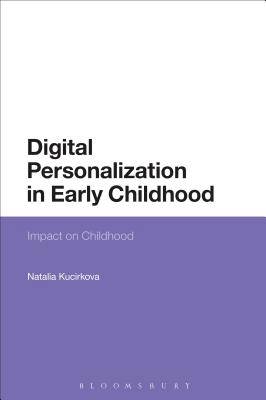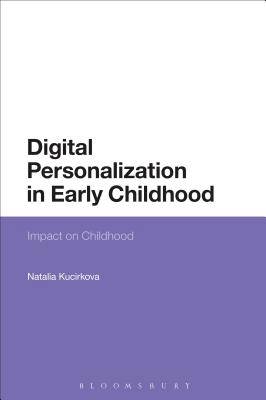
- Afhalen na 1 uur in een winkel met voorraad
- Gratis thuislevering in België vanaf € 30
- Ruim aanbod met 7 miljoen producten
- Afhalen na 1 uur in een winkel met voorraad
- Gratis thuislevering in België vanaf € 30
- Ruim aanbod met 7 miljoen producten
Zoeken
€ 51,95
+ 103 punten
Uitvoering
Omschrijving
Digital personalization is an emerging interdisciplinary research field, with application to a variety of areas including design, education and publication industry. This book focuses on children's education and literacy resources, which have undergone important changes with the 'personalization revolution' in the early 21st century.
The author develops original insights from educational research and her own studies concerned with digital and non-digital personalization, to discuss in a clear and critical way the thinking, research issues and practical implications of this new field. She scrutinises the character of technology-based personalized education to substantiate the claim that the current models of personalized education tend to be technology- and business-driven, with little pedagogical understanding of the social value of personalization. Research involving touchscreens, personalized books and 2-8-year olds is interrogated for its impact on children's development of language, creativity, identity, as well as family dynamics and classroom dialogue. The literature available on digital and non-digital personalization is discussed in relation to five key themes of personalized education, the so-called 5As: autonomy, authorship, aesthetics, attachment and authenticity. It is argued that the 5As need to be anchored in humanist principles for a sustainable pedagogy and practice. Based on the insights from research with typically and atypically developing children, Kucirkova proposes personalised pluralisation, as a pedagogical framework of personalized education for the future. The book aims to help scholars and professionals understand the connections between personalization and literacy, personalization and education, and personalization and wider socio-moral issues.
The author develops original insights from educational research and her own studies concerned with digital and non-digital personalization, to discuss in a clear and critical way the thinking, research issues and practical implications of this new field. She scrutinises the character of technology-based personalized education to substantiate the claim that the current models of personalized education tend to be technology- and business-driven, with little pedagogical understanding of the social value of personalization. Research involving touchscreens, personalized books and 2-8-year olds is interrogated for its impact on children's development of language, creativity, identity, as well as family dynamics and classroom dialogue. The literature available on digital and non-digital personalization is discussed in relation to five key themes of personalized education, the so-called 5As: autonomy, authorship, aesthetics, attachment and authenticity. It is argued that the 5As need to be anchored in humanist principles for a sustainable pedagogy and practice. Based on the insights from research with typically and atypically developing children, Kucirkova proposes personalised pluralisation, as a pedagogical framework of personalized education for the future. The book aims to help scholars and professionals understand the connections between personalization and literacy, personalization and education, and personalization and wider socio-moral issues.
Specificaties
Betrokkenen
- Auteur(s):
- Uitgeverij:
Inhoud
- Aantal bladzijden:
- 224
- Taal:
- Engels
Eigenschappen
- Productcode (EAN):
- 9781350105539
- Verschijningsdatum:
- 21/03/2019
- Uitvoering:
- Paperback
- Formaat:
- Trade paperback (VS)
- Afmetingen:
- 156 mm x 234 mm
- Gewicht:
- 317 g

Alleen bij Standaard Boekhandel
+ 103 punten op je klantenkaart van Standaard Boekhandel
Beoordelingen
We publiceren alleen reviews die voldoen aan de voorwaarden voor reviews. Bekijk onze voorwaarden voor reviews.








